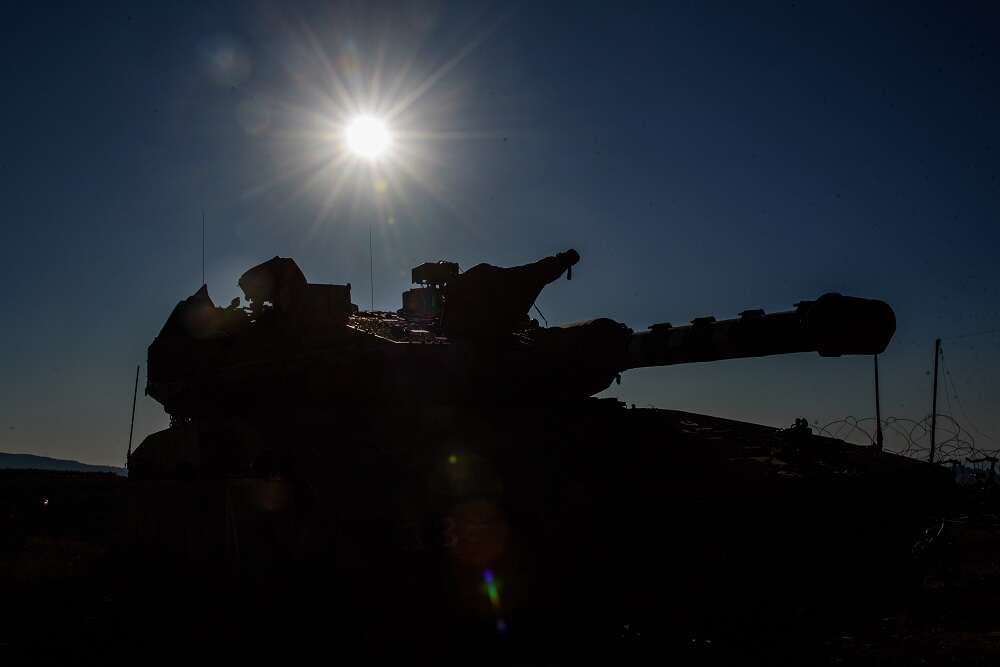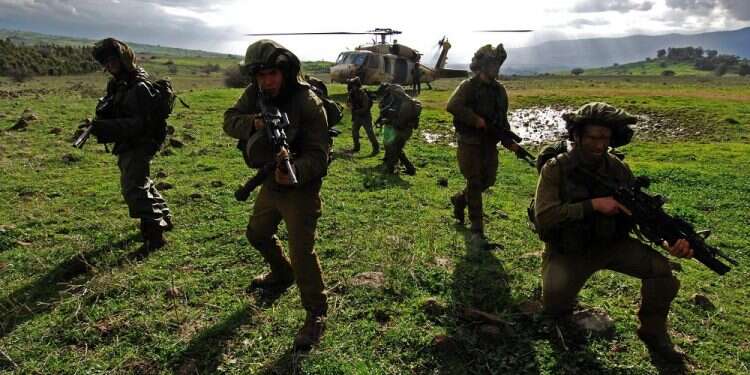The Israeli military earned scathing criticism from defense experts on Monday, after revealing that it has decided to cancel brigade-level training for the Ground Forces and replace them with simulations.
The IDF stressed that the move, already underway, does not stem from budget cuts, rather from an "organic change in the nature of the Ground Forces' training."
Follow Israel Hayom on Facebook and Twitter
Brigade-level exercises have always been the core of the Ground Forces' training routine, as they simulated true battlefield conditions and scenarios.
Past budgetary crunches have prompted the IDF to significantly cut back on these drills, but that has proved highly detrimental to the troops combat readiness.
Following the 2006 Second Lebanon War, the army sought to return to its basic "17x17 premise" – namely 17 weeks of training for every 17 weeks of operational deployments. This allowed for all regular army brigades to hold an annual wide-scale training exercise, as well as a divisional-level drill.
IDF officials said that the decision to introduce increased simulations at the expense of actual training exercises followed extensive preparatory work by the GOC Army Headquarters.
The move followed "issues raised by officers on the ground, especially junior officers, over the level of their training. They said it was falling short of meeting the challenges facing them on the battlefield," a defense official privy to the plan said.
This prompted the decision to significantly increase the focus placed on battalion- and company-level training exercises, at the expense of brigade-level exercises, so as to "hone the operational edge and make it more lethal," as one officer put it.
The new drilling format includes introducing two major division-level exercises a year, which will include all its units embedded with the division, as well as its supervising branches in the General Staff.
A pilot exercise of this nature has been scheduled for mid-2020.

Brigades excluded from the exercise will undergo other simulations. Here, too, the IDF plans to have officers participate in weeklong drills comprising operational scenarios, after which a performance review will determine whether the drill was successful.
"It's much more effective this way," the officer said.
The IDF said the move, while controversial, was "creative and brave," adding it was "a must considering the new reality on the ground."
A senior IDF officer said that the decision had nothing to do with defense spending issues, as the simulation drills require the same budgetary appropriations as regular exercises.
Even if defense spending is cut as part of the new budget, it will not affect the IDF's training budget, he stressed.
Still, defense experts criticized the move as "dangerous," saying it could seriously compromise Ground Forces officers' operational readiness.
Some even wondered why the IDF had refrained from making the plan public before it was already in place and whether the Diplomatic-Security Cabinet and the Knesset's Foreign Affairs and Defense Committee were aware of the move.
Critics said it will be difficult to make up for the lack of training among brigade commanders in the next war.
They further expressed concern over the move severely undermining reserve divisions, saying that a less dramatic step could have been taken, such as shelving half of the division-level exercises, at least for a trial period.
"It seems like someone wants to show that they are reinventing everything. It could be dangerous," one expert warned.




